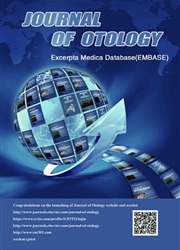

 中文摘要:
中文摘要:
目的:探讨miR-182诱导耳蜗前体细胞向毛细胞分化的作用及机制。方法从新生大鼠耳蜗中分离培养耳蜗前体细胞并用血清诱导分化,BrdU、Nestin免疫荧光染色鉴定细胞自我增殖能力;myosinⅦa和phalloidin免疫荧光染色鉴定其是否具有分化为毛细胞的潜能。分别利用miR-182 mimics和siRNA在新生大鼠耳蜗前体细胞中过表达和低表达miR-182,然后在细胞诱导分化7天后,用流式细胞仪检测分化细胞中myosinⅦa阳性细胞比例,用Western-blot检测支持细胞标志分子中Sox2的变化。结果使用miR-182 mimics进行过表达后,耳蜗前体细胞分化为myosinⅦa阳性表达的细胞比例显著高于对照组,使用miR-182 siRNA进行低表达后此比例显著低于对照组。Western-blot检测显示,Sox2在miR-182 mimics组较对照组降低,miR-182 siRNA组较对照组增加。结论过表达miRN182可以促进耳蜗前体细胞向毛细胞方向分化,Sox2可能是此过程中的靶基因。
 英文摘要:
英文摘要:
Objective To investigate the effects of miRNA182 in promoting differentiation of cochlear precursor cells. Methods Cochlear precursor cells were dissociated and cultured. The cultured cells were divided into three groups: (1) the control group;(2) the miRNA182 mimics group;and (3) the miRNA182 inhibiter group. To analyze the process of precursor cells differentiation, cells collected 7 days after culture were run through flow cytometry for myosinⅦ+cells. The expression of SOX2 was analyzed by Western-blotting. Results More myosinⅦ+ cells were observed when precursor cells were cultured with miRNA182 mimics than others. The expression of SOX2 was significantly suppressed in the miRNA182 mimics group. Conclusion Our findings suggest that miR-182 can promote in vitro cochlear progenitor cell differentiation. Sox2 may be one of the target genes during mir-182 induced process, providing new target for hair cell repairing.
 同期刊论文项目
同期刊论文项目
 同项目期刊论文
同项目期刊论文
 期刊信息
期刊信息
